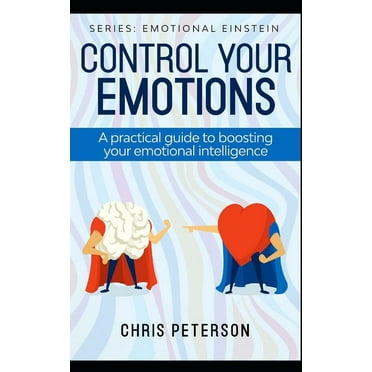Emotions play a vital role in our daily lives, shaping how we act, behave, and interact with others. Mastering emotional control is not just about suppressing feelings; it's about grasping and controlling them in a way that promotes clarity of mind and improved relationships. In a world that is often chaotic and challenging, developing emotional regulation skills can be the key to navigating life’s ups and downs with elegance and resilience.
Many people find themselves overwhelmed in challenging situations or during difficult conversations. Whether it's a heated argument with a loved one, pressure at work, or criticism from peers, the ability to stay collected can transform these moments into chances for growth. This guide will examine ten validated ways to improve your emotional control, explore the science behind emotional regulation, and provide practical techniques and strategies to help you react thoughtfully rather than panicking. You'll uncover how to build resilience, manage anger in a constructive manner, and even teach emotional control to younger individuals, all while comprehending the significant connection between emotional regulation and psychological well-being, relationships, and overall wellness.
Established Methods for Emotional Control
Emotional control is vital for dealing with life's obstacles effectively. One reliable strategy is mindful awareness, which motivates individuals to remain in the moment and conscious of their feelings non-judgmentally. By utilizing mindfulness, people can reduce impulsivity and increase their ability to respond thoughtfully rather than reactively in high-pressure scenarios. Meditation and deep breathing exercises can act as effective tools in this context, helping to foster a more tranquil emotional state.
Another key technique is recognizing and addressing emotional cues. Knowing what specifically provokes intense emotional reactions enables individuals to get ready for or prevent these triggers when feasible. Keeping a journal can be extremely helpful in identifying trends and triggers over an extended period. This introspection promotes better emotional management and allows individuals to act in more constructive ways during contentious conversations or disputes.

In conclusion, cultivating healthy ways to cope is essential for emotional control. This may comprise exercise, engaging in interests, or utilizing techniques like mental imagery to form a mental space away from stressful situations. Incorporating regular exercise, maintaining a nutritional balance, and ensuring sufficient sleep can also contribute to emotional well-being. By establishing these habits, individuals are more prepared to handle their emotions and maintain calmness in various scenarios.
Understanding Feelings Management
Feelings regulation refers to the methods through which people influence their emotions, how they experience them, and how they articulate them. This ability is crucial for navigating daily life, as it greatly impacts our engagements, decision-making, and overall emotional wellness. People who master emotional regulation can effectively manage their feelings responses, allowing them to be calm and composed in difficult situations. This competence not only contributes to individual well-being but also enhances relationship relationships.
The research behind feelings regulation highlights the brain's role in managing emotions. Neuroimaging studies reveal that particular areas of the brain, such as the prefrontal cortex, are involved in regulating feelings through cognitive reappraisal and alternative strategies. By comprehending the neural mechanisms that underlie our affective responses, we can develop better techniques to cope with our emotions. This knowledge encourages persons to recognize that feelings, while intense, can be controlled with repeated effort and purpose.
Enhancing affective regulation involves cultivating self-awareness and understanding emotional triggers. Identifying what leads to certain affective reactions enables persons to predict and handle responses more efficiently. This self-awareness is a key aspect of affective control, permitting people to recognize dysfunctional patterns and replace them with positive behaviors. As we understand to navigate our affective landscape, we enhance our adaptability, improve our psychological well-being, and set a firm foundation for fruitful connections and decision-making.
Utilitarian Uses for Everyday Life
Integrating emotional control into daily life may significantly impact your interpersonal relationships and decision-making. Begin by developing self-awareness; spend a moment to consider one's emotions before responding in conversations. This awareness enables one to identify your triggers while respond considerately instead of reacting in haste. Think about keeping how to be less reactive at work with feelings to track patterns, which can provide insights regarding your emotional triggers and improving one's general regulation skills.
An additional effective method involves participating in mindfulness practices. Simple techniques, such as breathing exercises and meditative practices, may significantly lessen stress and improve one's capability to stay composed in stressful situations. In moments faced with stressful situations, don't forget to use breathing exercises for immediate calm. Such practices may assist center one, allowing to achieve clearer thinking and better emotional control during difficult conversations in the workplace and in personal life.
Finally, fostering wholesome routines can also promote emotional balance. Regular exercise, a balanced diet, and sufficient sleep holds essential roles for managing emotions. By emphasizing these elements of one's everyday schedule, you create a foundation for emotional resilience, enabling one to handle stress more effectively. Together, these useful strategies can enhance your ability to regulate emotions, resulting to better relationships as well as general well-being.
